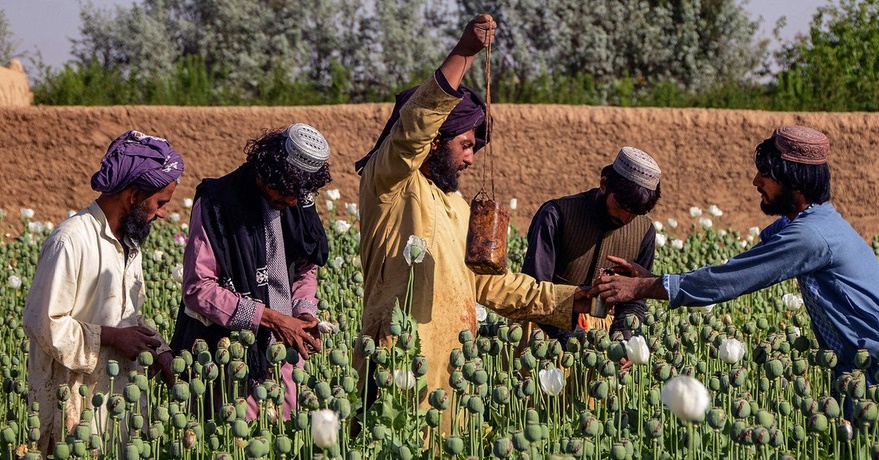Opium ban in Afghanistan: Taliban hope for international recognition

Opium cultivation has long been the Taliban’s main source of income. Now they want to punish him. The regime hopes that this will gain international recognition – but the plight of many farmers is likely to increase.
Abdul Rahman is in the process of bringing in the opium crops in the fields near Kandahar in southern Afghanistan. For decades, the region was a growing area for opium, from which heroin is made. “If the Taliban now ban opium cultivation, then they must help us to change over. And the world must also help us,” he says.
Mohamad Taj’s family has also been growing opium for 28 years. Now that should be over: The Taliban have banned the cultivation of opium. Taj has 25 family members to support, his land is leased. Opium cultivation was his main source of income.
In early April, the Taliban government announced that the crops should be destroyed immediately. Anyone who does not comply will be punished. But since then nothing has happened in the fields near Kandahar. “If we can’t continue harvesting, then we have a problem,” says farmer Rahman. “After 20 years of civil war, everyone is in debt. How are we supposed to feed our children?”
Cultivation ban should bring recognition
Opium cultivation was the Taliban’s main source of income during the civil war. They control the drug trade and tax it. Officially, they have never commented on it. International observers assume that they took in around 20 million US dollars in 2020 alone. From 2015 to 2020, 80 percent of global opium production came from Afghanistan, the country was the world market leader. The Taliban had previously banned the cultivation of opium under penalty of punishment when they ruled Afghanistan between 2000 and 2001.
What does the renewed ban mean? Ajai Sahni is Executive Director of the Conflict Management Institute in New Delhi, which collects data on drug cultivation and trafficking in South Asia. “The aim of the Taliban’s opium ban is to get recognition from the international community. This is very important for the Taliban because it allows money to flow,” he explains.
So far, international aid has not gone to the Taliban, but directly to the Afghans via UN organizations. The Taliban were trying to get some kind of compensation from the international community by banning opium cultivation, says Sahni – along the lines of: “Look, opium cultivation makes up a very large part of our farmers’ income. If they destroy the harvest, they have to be compensated in any way.” The expert believes that such an argument could meet with the approval of the donor countries.
Reinforcing the synthetic drug glut?
Abdul Haq Akhondzada is the Taliban’s Deputy Interior Minister and responsible for drug policy. In the ARD interview, he states that the ban on cultivation has been issued, but that it is not to be implemented immediately. “The farmers have many problems. We have said that this year’s opium harvest will not be affected. Only then will cultivation be banned.”
He openly admits the Taliban government’s goal: “We want you to help us, because everyone knows that our country is in great trouble. It has experienced wars for 40 years.” Opium cultivation was a way for Afghans to feed their families. “The whole world has to help us. It has to stand by us,” says Abdul Haq Akhondzada.
The cultivation and trade of opium was a very important source of income for the Taliban as an insurgent group, says expert Ajayi Sahni from New Delhi. For the Taliban administration, this source of income is now drying up. The drug trade is controlled by warlords, small local groups and criminal organizations across the Pakistani border.
He assesses the effects of the opium ban on European markets as follows: “If the availability of heroin in Europe decreases, there will be a shift to other drugs, especially synthetic ones.”
At the same time, another conflict region is developing as a new main producer of opium: Myanmar. There, the acreage would be expanded – because there is no longer a government that has enough influence to prevent it.

